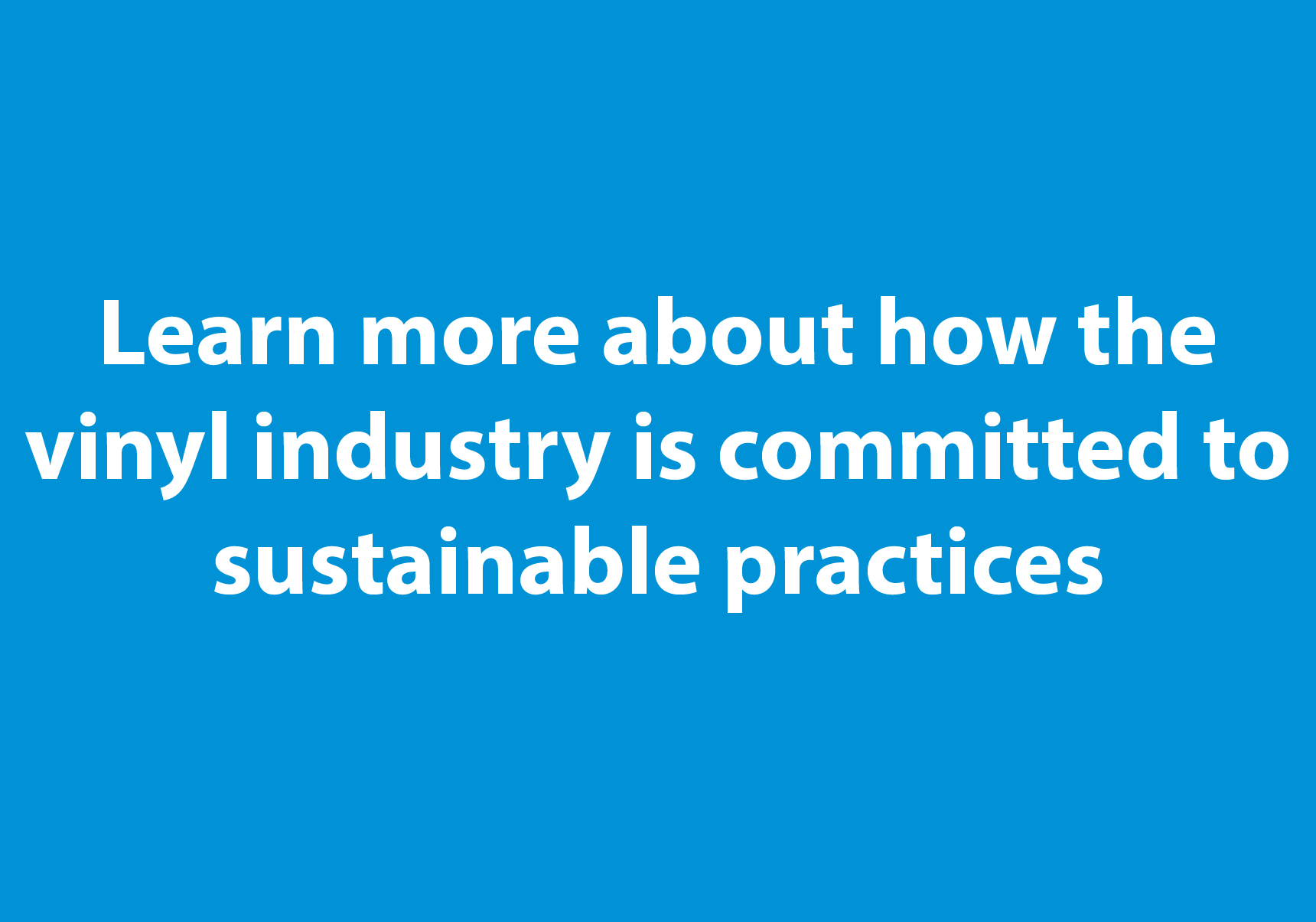
Three Things You Might Not Realize About Vinyl and Sustainability
By Erin Lowe, VSC Intern
One definition of sustainability is the ability for something to be maintained at a certain rate or level. As the industrial world continues to grow, it has become increasingly important to be able to produce more while using fewer resources and creating less waste. I began this internship hoping to leave with a better understanding of the sustainability side of the vinyl industry.
- There are far more advantages to reusing and recycling plastics than many people realize.
According to the U.S. Environmental Protection Agency (EPA), plastic can be recycled multiple times, and recycling also uses less energy than creating a new product entirely. Reducing plastic waste is a critical issue, but when recycled properly, plastic can be a more sustainable alternative. Recycled plastics, and vinyl, can benefit both the environment and the economy.
Due to the durability of vinyl, it is often used as a material in products and projects that require a longer service life. As an example, VSC member Sika Sarnafil produces vinyl roofing membranes, that are designed to last for decades. When the vinyl reaches the end of its service life, Sika has a takeback program to recycle these old membranes back into new roofing membrane.
Vinyl accounts for only about 3% of plastic waste in landfills, but this could be seen as valuable feedstock for recycling ventures. It has been exciting to learn how the Vinyl Institute is exploring these various recovery initiatives.
- The U.S. vinyl industry has reduced emissions significantly in the last 50 years.
Since the 70s, the United States vinyl industry has reduced emissions by more than 70% through guidelines established by the EPA for companies to follow, such as the PVC Maximum Achievable Control Technology (PVC MACT). But while emissions have reduced, gross domestic production has increased by 182%. This data shows that continued work towards an environmentally friendly industrial U.S. does not hinder the market. The vinyl industry is committed to increasing sustainability efforts and reducing environmental impact.
- Sustainability matters to the consumer, especially for the vinyl industry.
Companies are working towards producing their products in a more sustainable manner, and people are much more environmentally aware as compared to 15 years ago. According to a Nielsen study, consumers are willing to pay more for products and services that are committed to positive social and environmental impacts. This has helped to push companies to make changes in the direction of sustainability. It is taking the public and the industry working together to really make a difference in vinyl sustainability.
The future of the vinyl industry will rely heavily on a continued commitment to sustainability. Vinyl is a material that has helped to modernize the world, and it’s important that we use our resources responsibly.

